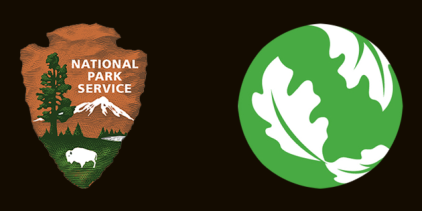Great Smoky Mountains National Park, Tennessee
Cohesive Strategy - Response to Wildfire, Maintain and Restore Resilient Landscapes
Excellence in Wildland Fire Management

NPS and TNC
Great Smoky Mountains National Park, the Appalachian Fire Management Zone and the National Park Service Southeast Region lost Fire Management Officer Dave Loveland to retirement, but he did not leave them empty-handed. The retiring fire manager relied on a career’s worth of knowledge, experience and networking to craft a formal agreement with The Nature Conservancy (TNC) that will benefit the Great Smokies, Appalachian Zone and Southeast Region (SER) for years to come. The agreement also provides a template for the rest of the wildland fire community to customize as it fits in their regions, zones and program areas.
Early in 2015, Great Smoky Mountains fire staff met with local TNC representatives to explore avenues for sharing resources on prescribed fire activities and getting more fire on the ground in the Smokies and the Southern Appalachians. According to Loveland, working with other federal agencies on prescribed fire isn’t always easy. “We continue to struggle when it comes to sharing resources for prescribed fires, especially higher value resources.”
Appalachian Zone staff also met with with TNC representatives in other areas, such as Cape Hatteras National Seashore in North Carolina. Each meeting continued to link subject matter experts (SME) and furthered curiosity of where else the zone might have an opportunity to work with the TNC.
Loveland realized that with the move to fire management zones, any agreement would need to cover multiple states. He felt the logical thing to do would be to include the entire Southeast Region, so that the agreement could be used by other zones as well. He worked with all required parties to finalize a signed general agreement that formalizes a working relationship between SER fire management and TNC throughout the southeastern United States. The agreement allows the exchange of resources, primarily to accomplish prescribed fire treatments, but also to assist with or participate in training, step-up staffing, preparedness and suppression activities as personnel are available and qualified to do so.
“With the move to zone configurations, limited fire resources are covering a large territory and we find ourselves working in locations where we may have limited knowledge of the local conditions and needs.” According to Loveland, the TNC agreement provides a solution to that problem while creating additional benefits. “This agreement provides us access to qualified personnel to assist on prescribed fires. More importantly, it also gives us access to local professionals to assist with strategic planning and provides access to knowledgeable cooperators who are capable of independently assessing resource needs and recommending management actions.”
Another benefit of the agreement, as Loveland sees it, is that TNC affiliates are stable partners in areas where the NPS may have periodic turnover. “They live, work and care passionately about these areas. The TNC often has the same set of resource management values as we in the National Park Service do, so it makes for a great working relationship. This agreement will be another useful tool for the Southeast Region Fire Management program. It would not have been possible without the efforts of a number of people, most notably Katherine Medlock of The Nature Conservancy and Appalachian Zone Fire Ecologist Rob Klein.”
All fire management programs should consider the possible contributions their local TNC representatives can make in helping to strategically plan or tactically implement future fire treatments. TNC fire representatives have expressed a willingness to help and are eager to work with the NPS. TNC should also feel free to contact NPS fire staff if and when required, such as seeking assistance on a prescribed fire.
For general information about Great Smoky Mountains National Park, visit https://www.nps.gov/grsm or call the park visitor center at (865) 436-1200.
Contact: Joshua Manley, Regional Fire Communication and Education Specialist
Email: joshua_manley@nps.gov
Phone: (215) 327-6407
Last updated: December 14, 2017
